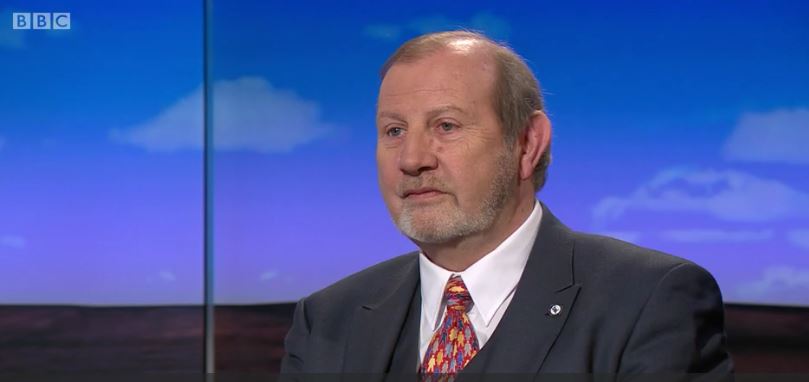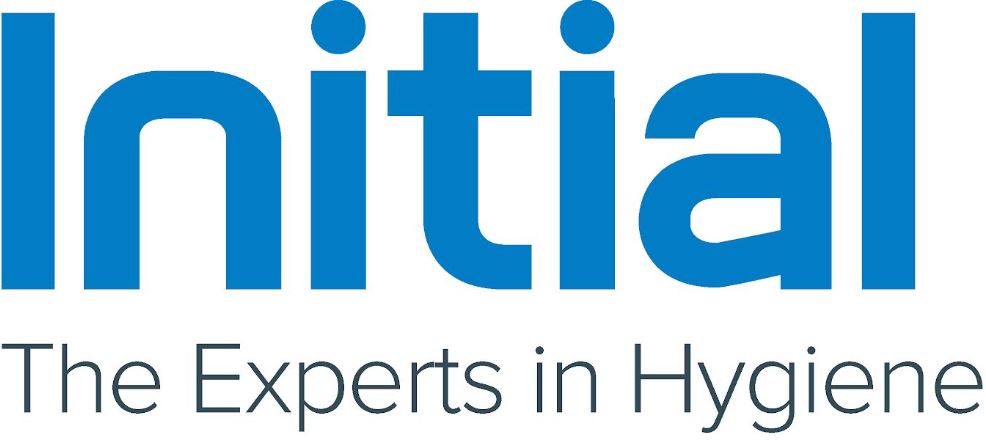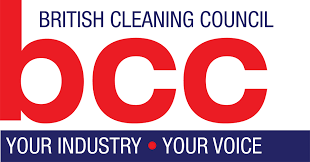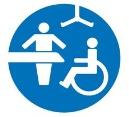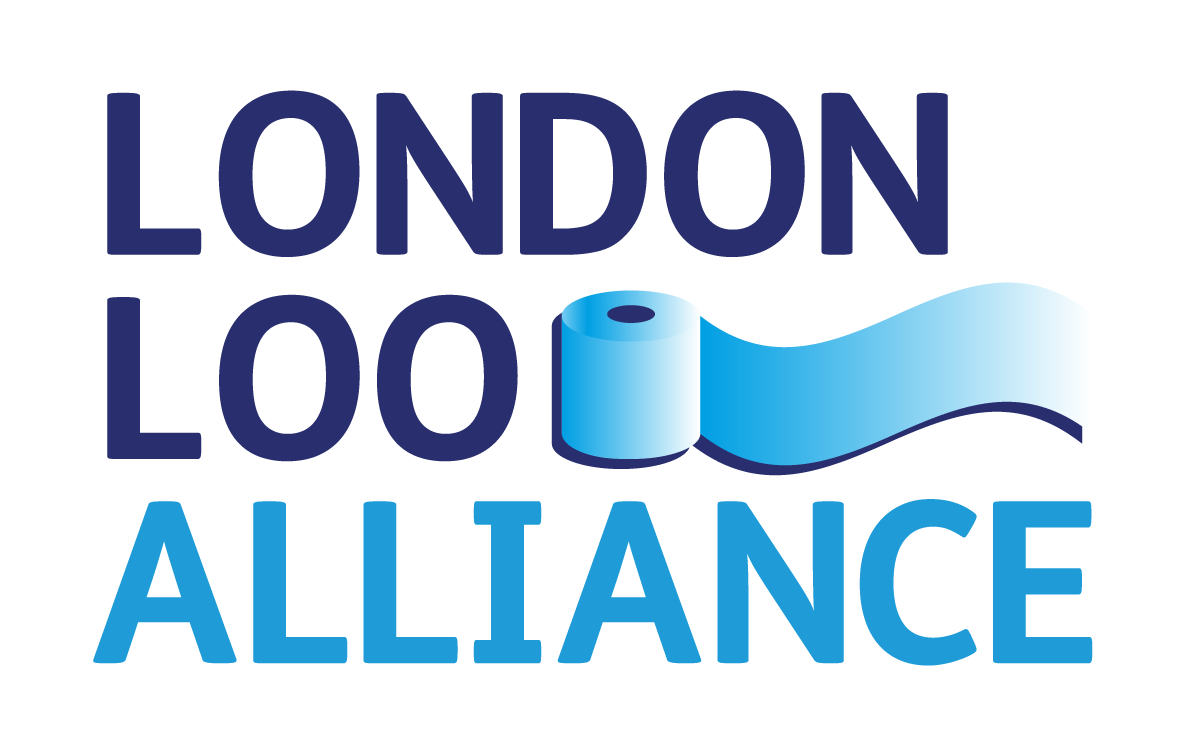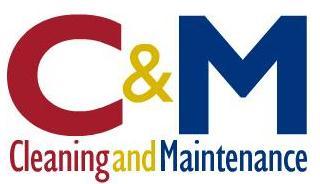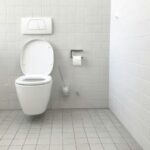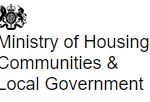HAPPY NEW YEAR


To ALL our Members and Business Colleagues,
2025 was a landmark year for the Association and resulted in our invitation into Westminster, to provide a “state of the nation” report to the Secretary of State for the MHCLG, on the overall provision or percieved lack of provision of publicly accessible toilets across the UK.
Initially working with Alex Norris MP who was the Secretary of State in the first half of the year; we made signficant progress in getting government to recognise the appaling lack of good clean decent public tolets still available for the residents and many thousands of overseas visitors to find and use.
Outlining the massive economic influence that these facilities provide to local shops, markets and stores and the significant equality, health, safety well-being and sanitary benefits that are directly derived from decent levels of well maintained and proper toilet provision.
On 25th September we were delighted to welcome the introduction of the governments new “Pride in Place” policy and the announcement of a £5billion fund over the next 10 years to improve local neighbourhoods and streets – and even more welcome was the inclusion of pulic toilet provision within this document (See Section 99)
I am also delighted to report that we have been contacted and welcomed the support of a number of MP’s and members of the Lords.
Lord Craig MacKinlay has recently become our first Patron and we are working on plans to host a meeting in Westminster early in the new year to engage with all our political colleagues hopefully set some future goals.
Our mission is being set to work closely with the new Secretary of State, the Rt Hon Steven Reed MP and his parliamentary team to support the role out of this fantastic initiative; and to continue to push for a “Duty” to be placed on all Local Authorities and coucils to devise a toilet “Strategy” for each area and to see that plan implemented and endorsed by government.
I look forward to working with our Management Advisory Committee and all our memebers and colleagues throughout 2026. We wish you all Peace Love and Joy in all your endeavours both at home and in business.
Raymond Martin
Managing Director for the BTA
World Toilet Day 2025
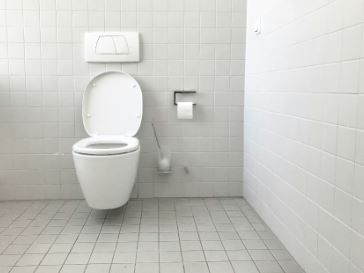
MEDIA RELEASE
EMBARGOED UNTIL 00.01 ON WEDNESDAY 19 NOVEMBER 2025
Nine in ten British residends call for more funding for public toilets ahead of Autumn Budget. British Toilet Association urges Chancellor to ringfence funding to support personal wellbeing and local economies. As the Chancellor prepares to deliver the Autumn Budget, a new nationwide survey reveals that 92% of the British public is calling for increased government funding for public toilets.
The survey, led by the British Toilet Association (BTA), has published the results on World Toilet Day as part of its ongoing ‘Legalise Loos’ campaign.
The BTA is urging the Chancellor to ringfence funding for public toilet provision, arguing that clean, accessible facilities are essential for economic participation, public health, and social inclusion. Providing public toilets is essential to supporting local businesses and stimulating economic growth: research shows that pedestrian friendly investment generates 30% more footfall in town centres and high streets. For instance, in Soho, a lack of
public loos costs £4.9m every year in lost revenue.
The BTA is also calling for public toilet provision to become a statutory duty for local councils, ensuring long-term accountability and access. Currently, local authorities have the choice whether or not to provide any public toilets. As it is not a duty, they can opt out completely. In an era of public spending cuts, the number of public toilets has reduced by a staggering 40% since 2000, impacting both people’s wellbeing and the health of our economy.
Notably, 80% of survey respondents did not identify as disabled, highlighting how a lack of public toilets is a universal issue. The impact is felt across society, from older people and parents with young children, to those with chronic health conditions, menstruating individuals, people with hidden disabilities, and those simply out and about day-to-day.
Respondents shared stark examples of how they change their behaviours to deal with a lack of facilities: “I restrict my water and food intake when I’m out. I actively starve myself on days when I know I’m in an area with limited loos.” “I suffer from IBS and sometimes my bowel movements are unpredictable. I therefore plan activities around being able to find a loo.”
“I don’t go to the shopping centre because the loos are closed. It pushes me to shop online.”
Other key findings from the survey include:
93% believe access to clean public toilets should be a legal right and a
statutory duty for councils
71% are seriously concerned about decreasing numbers of public toilets
65% say the lack of toilets affects how long they spend outdoors, shopping, or socialising
65% spend less money in their local area as a result of a lack of facilities.

Raymond Martin, Managing Director, British Toilet Association, said: “ Toilets are not a privilege, they are a fundamental human right. This survey should be the vote of confidence that the Chancellor needs to make this essential community infrastructure part of the UK’s growth agenda. By spending a penny now, we can safeguard facilities for the future – benefiting local communities and local economies
in the long term.”
ENDS
For interviews, please contact:
Rabbi Laura Janner-Klausner, Deputy Chair, British Toilet Association:
lauranjk@gmail.com / 07977 227195
Raymond Martin, Managing Director, British Toilet Association:
raymond@btaloos.co.uk / 07799 881763
For more information, please contact:
Rose Marshall-Gibbons, Associate Director, ING Media
rose.marshall-gibbons@ing-media.com / 07922 581876
Follow the campaign here:
https://www.linkedin.com/company/legalise-loos/
https://www.instagram.com/legalise_loos/
The full survey results and image are available for download here:
https://www.dropbox.com/scl/fo/fj2szu7o6wa7raz9ewpma/AFdMS0j186Fv_-
BGWiw3KGI?rlkey=nqznki42v1o0z9527zqdpcjm4&st=iehcuevj&dl=0
About the British Toilet Association
The British Toilet Association’s mission is to represent the interests and aspirations of providers, users and suppliers of all types of toilets and to act as a catalyst for change in the pursuit of standards of excellence in all areas of “away from home” toilet provision and management.
New Corporate Champion
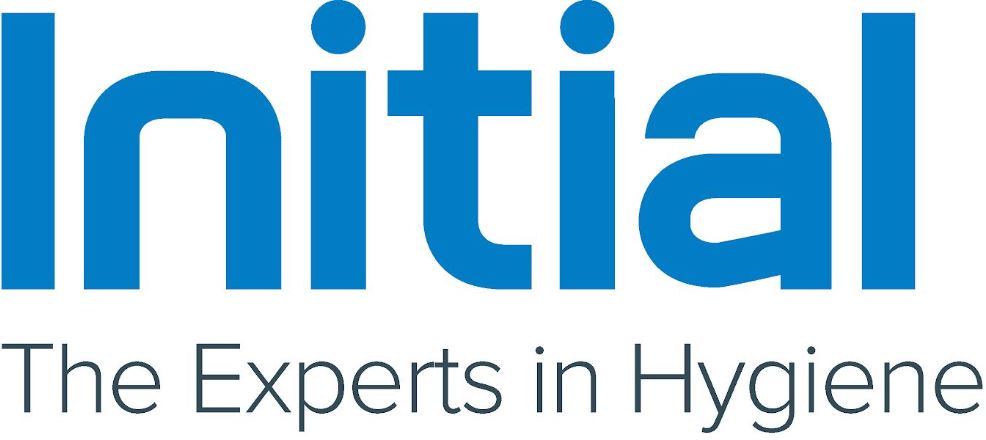
The Managaing Director and the Management Advisory Board are delighted to anounce our new agreement & partnership with Initial Washrooms who are one of the major leading suppliers of quality toilet, bathroom and washroom products and services across the UK and Ireland.
Washroom Hygiene Services
As part of the Rentokil Initial group, we pride ourselves on being a global company with a local feel. Initial Washroom Hygiene is a British-owned company with 120 years of experience in the service industry. We have a reputation for innovation, strong customer relationships, and trust in the UK market.
We are one of the leading washroom hygiene companies in the UK, offering a comprehensive range of products and services that will enhance washroom facilities and ensure compliance with key legislation.
Our core washroom hygiene services include soap dispensers, sanitising products, hand dryers, sanitary bins, air fresheners and floor mats.

See the exciting range of modern bathroom provision

Why Choose Initial Washroom Hygiene?
- Local and Expert Response – You can trust us to provide your business with effective and fully compliant hygiene services tailored to your specific needs. Our highly trained, RSPH accredited, local Customer Delivery Representatives are dedicated to supporting you with expert solutions – no matter where you are situated in the UK. We have 21 branches covering the whole of the UK. Proud to deliver great customer service, we are rated excellent on Trustpilot with over 13,000 reviews.
- Innovative Solutions – Combining our expert understanding of human behaviour and how germs spread to bring new innovations to the market, such as the Initial AIRTrinity, revolutionary air technology that has been designed specifically for the washroom. We believe everyone is entitled to dignity in the washroom regardless of their age, gender or need.
- Technology – Our product range features No Touch technology and intelligent connected devices that provide alerts for refill requirements, ensuring optimal hygiene maintenance. Our servicing is integrated with technology to offer full traceability of service delivery to provide the best customer experience possible.
- Health & Safety – With a ‘world class’ Health & Safety record, we prioritise the wellbeing of your staff and visitors.
- Sustainability – We are dedicated to delivering sustainable operational solutions and working towards zero customer waste to landfill across our entire portfolio which we’ve already achieved in England and Wales
Legalise Loos
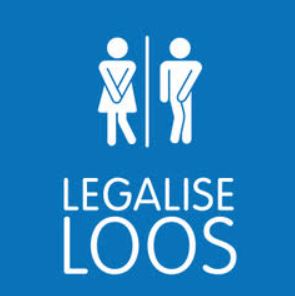
The BTA has officially launched it’s Legalise Loos campaign in which it hopes to encourge National government to recognise the problems of poor toilet provision and the lack of decent clean facilities across the country. By promoting a series of strong images and messages through the media and our marketing materials we are aiming to get acknowledgement form the relevant departmenst that there is a national problem with the provision and quantity of publicly accessible toilets in our towns and villages,
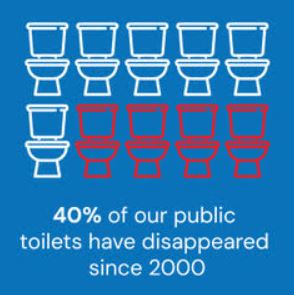
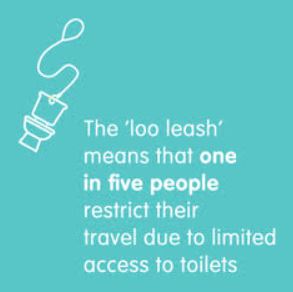
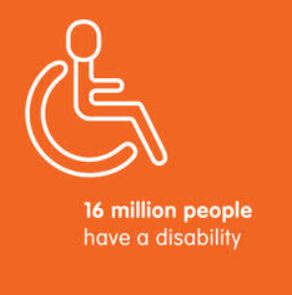
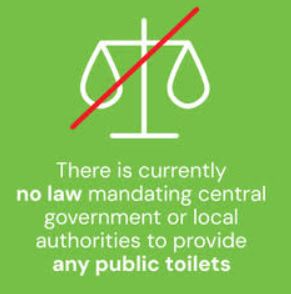

Some of the messages we have been using to promote the campaign
With over 40% of all publicly accessible toilets lost in the last 10-15 years it has become ever more difficult to find a public loo when you need one. Additionally, those that remain are under ever increasing threat of closure due to the lack of any recognisable or significant funding from Westminster. Councils across the country are, all to often, relying on “discretionary” monies left over from the mandatory services they provide to update or make necesaary repairs to their stock.
The BTA is repeatedly facing both media and public complaints regarding the often appalling conditions that users face when trying to find relief. With so many public toilets being unmanned or unsupervised the growing spectrwe that is anti-social beheaviour or misuse looms large and this brings increased costs that councils have to find.
But the fact remains that publicly accessible toilets are an essential and vital piece of the local infrastructure and they play a very significant role on attracting footfall and increased revenues into local neighbourhoods and shops. Where we encounter well maintained and fully functioning facilities it is no suprise to find that shops and local amenities are thriving. All the major shopping centres and leiusure complex’s have excellent facilities because they understand the value of the customer experience. If we want to regenerate our high streets and local neighbourhoods then we have to invest in decent clean public toilets to: not only bring the users into the area – but make sure they can spend time shopping and enjoying the shops, parks and family amenities that councils spend so much time and money installing to develop healthy communities and social inclusion.
Pride in Place
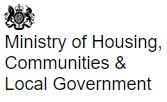
On 25th September the Secretary of State for MHCLG the Rt Hon Steve Reed issued a governemnt policy paper called “Pride in Place” that set out the whole of governments desire for communities to take back control of their local environments. Backed by a record investment of around £5billion over the next 10 years that was announced by the Prime Minister.
Section 99: of the Policy paper states: Recognising that town centres must be accessible to everyone in our communities, we must address the barriers that poor toilet provision can represent. We have therefore included the provision of public toilets as a pre-approved intervention for areas receiving the Priode in Place funding.
In his foreward he remarked: “Make no mistake that this is a pilot in a new way of governing, and it dwarfs anything that has come before. The party, founded a hundred years ago to serve working families, is today putting working families in control of their lives and their neighbourhoods. This is our alternative to the forces trying to pull us apart. This is our answer to those who feel silenced, ignored and forgotten”
The Rt Hon Steve Reed OBE MP
Secretary of State for the Ministry of Housing, Communities and Local Government
After over 25 years of campaigning and lobbying successive governments the BTA greatly welcomes the announcement and has agreed with the department to work closely with Ministers and Councils to see the inception and roll out of this wonderful new initiative. Our political team are already gathering support from Ministers and Memebers of the Lords to add their support to the Mayors and all the Councils who will aail themselves of this new programme and associated funding.
BOYS need BINS


We are currently working closely with a number of organisations on developing a campaign to encourage government to devise a legal requirement for the inclusion of sanitary bins in Mens Toilets.
Over 2 Million men across the UK may have an urgent need to visit the toilet to remove or replace a stoma or incontinence product. Until now the soiled unit would have been disposed of in a Litter bin (if provided) or they may be forced to carry the used item away from the toilet perhaps to home.
Female toilets have always been well provisioned with sanitary bins in nearly every cubicle to cater for the disposal of towels & pads.
In recent months we have joined forces with Prostate Cancer UK and together we are gathering research and evidence to support our lobbying of national government to make a change in the current legislation to make it compulsory for providers to address the needs of all males who suffer with the problems of proper disposal.
A nationwide email survey has been distributed by supporting organisations to all their members and major organisations providing public toilets. These results will help us to try and understand the extent of the problems being faced by both the users and the providers.
WE NEED YOUR HELP !
The BTA are supporting the All Party Parliamentary Group for Bladder
and Bowel Continence Care’s campaign called Boys need Bins. The campaign aims to raise awareness of male incontinence and examine what facilities currently exist for incontinent men. We’ve partnered with
other national charities/associations to help achieve this:
- British Toilet Association
- Bladder Health UK
- International Longevity Centre (ILC)
- Men’s Health Forum
- Prostate Cancer UK
- Tackle Prostate Cancer
- Truckers Toilet UK
How you can help
We’d like to hear from those responsible for the hygiene provisions in your toilet facilities, to get an
understanding of the current need for male hygiene bins. If this isn’t you, please forward this email on to
the most relevant person in your organisation.
Our 5-minute survey is completely anonymous and asks for no personal details, so please share as much
detail as you want. There are no right or wrong answers.
https://project.tolunastart.com/tqsruntime/main?surveyData=ewqEMryCmi3LgTze45dHLMZCvYremf0kCcxST2LGWp2oe+/cAaUPfZeF1+qBMT9s
Your feedback will help us start conversations with the Government and key decision makers who can
create a positive change for men affected by incontinence.
The deadline for submission is Friday 26 May 2023.
If you have any questions about the survey, need support with completing it, or want more information on
this topic more generally, please contact campaigns@prostatecanceruk.org
With our thanks and best wishes,
Raymond
New Bill for Public Toilets moves to the Lords

In October of 2022 a “Levelling Up and Regeneration” Bill was introduced into Parliament by Ministers that will address a number of issues that the country facres ciming out of Covid and redressing the decline in local services and planning. The Bill has passed through the Commons and is now being read and debated in the House of Lords. It is hoped that the Bill could become an ACT of Parliament before Easter 2023.
It is with great delight that The BTA can report to all our Members Colleagues and Friends that within this Bill is a section specifically relating to much of our unrelenting work and ethos over the last twenty years.
Clauses 57, 58 and 59 refer directly to the appointment of a Toilet Commissioner whose priority will be to access the provision and need for public toilets throughout England and put in place a National Strategy for Local Authorities to follow – to devisie a Toilet Plan for each council area.
Working with an Independant Panel of advisors the commissioner will have to report to the Secretary of State for the Dept of Levelling Up and funding should become available for LA’s to enact some new developments.
The BTA will, of course, be offering oits full support to the Commissioner ,the government and Local Authorities in assembling and completing these tasks within the given timeframe. However, it is hoped that this is an exciting begining of a more sustained stategy for the future toilet provision across all the nations.
The following is an extract from the Hansard Report
New Clause 57
Review of England’s public conveniences
“(1) The Secretary of State must, within 6 months of the day on which this Act is passed, appoint commissioners to consider the level of need for public conveniences in England and the extent to which current provision matches that need.
(2) The Secretary of State must publish the report of the Commissioners before the end of the period of 12 months beginning with the day of their appointment.”
New clause 58—Public convenience plans—
“(1) Each tier 2 local authority in England must produce a Public Convenience Plan for their authority.
(2) A plan under this section must be formulated in consultation with local partners and the public.
(3) Such a plan much consider—
(a) the current level of public convenience provision,
(b) the current level of demand for such conveniences,
(c) what gaps there are in provision, and
(d) the needs of communities with protected characteristics under the Equality Act 2010.
(4) Central government must provide funding to local authorities to cover the costs of this new responsibility.”
New clause 59
Business rate relief scheme for business making toilets publicly available—
“The Secretary of State must by regulations make provision for a scheme under which if a business liable to business rates permits non-customers to use their toilets as a public convenience, the area of the premises containing the toilets is discounted from the calculation of the premises’ overall rateable value.”
In 2016 a BBC report highlighted that local authorities had closed one in seven public toilets between 2010 and 2013. The report identified 10 areas in England and Wales with no council-run toilets at all.
By 2018, the follow-up report found that the number of areas without any public conveniences had increased to 37. That is a trend likely to accelerate with the pressures on local authorities.
It has led to closures or transfers to perhaps voluntary groups or charities. The good will engendered in that is a welcome thing, but it means that accountability for that essential social infrastructure has been lost. We have to be clear about this. I do not think public toilets are a “nice to have”.
Lack of adequate facilities disproportionately affects all sorts of groups, including people who work outdoors, people with ill health or disability, the elderly and the homeless. Such essential facilities can make the difference between being able to confidently leave the house or not.
Improved Legislation and more funding needed
23 July 2021
The British Toilet Association has called for improved legislation and more government funding to address the current “appalling” lack of public toilet provision.
Public toilets are in “crisis” and rapidly vanishing, the body said, with many of those that remain displaying totally unacceptable levels of cleanliness and hygiene and the COVID-19 pandemic has only made the situation worse.
Many public toilets have been locked down since the start of the pandemic due to a lack of cleaning, funding or any government guidance on how to get them fit for purpose, The British Toilet Association (BTA) said.
The public was being forced to go to the toilet in streets, beaches, open spaces and beauty spots, causing street fouling figures to escalate, aggravating the risk of COVID-19 transmission and leaving the local authorities to foot considerable clean-up costs, it added.
“Anyone suffering with an accessibility issue or those caring for someone who has limited mobility or a medical condition is socially excluded and potentially deemed prisoners in their own homes.”
–Raymond Martin
Managing Director, BTA
No Legal Requirement for Local Authorities to Provide Public Toilets
With no legal requirement in place to force local authorities to provide or run public toilets then, the BTA believes the majority of councils across the UK do not allocate sufficient resources or funds to the provision of public toilets.
It is calling for the government to make sanitation and hygiene a major priority and support local authorities to stop the closures, open new facilities and establish a new set of standards of hygiene and cleanliness.
The BTA has been lobbying for action since the pandemic began, asking questions of Ministers and the PM, writing to Ministry of Housing, Communities and Local Government and has taken part in a Zoom meeting with Lord Stephen Greenhalgh, the Minister for Building Safety and Communities and other Members of the House of Lords but without an adequate response.
It is currently preparing to write again to Lord Greenhalgh and also to the new Health Secretary, the Rt Hon Sajid Javid.
The BTA is a not-for-profit organisation that campaigns for the highest possible standards of hygiene and provision in all “away from home” toilet facilities across the UK. It understands that over a third of the population need to visit a toilet on an urgent basis, often at very short notice.
BTA Managing Director Raymond Martin said: “We are appalled at the total lack of funding over many years and extremely concerned at the closures and unprecedented low levels of public toilet facilities before, during and going into the future. This is now a crisis.
“Across our beautiful country, that was once the envy of the world because of its sanitation systems and hygiene controls, those responsible have allowed us to fall so far from the standards our forefathers achieved.
“Then along comes one of the deadliest pathogens for many generations and unbelievably our ministers and their government colleagues cannot see the need or make available any primary funding to tackle and fight this continuing threat to our nation’s daily existence.
“From the very first announcement of the arrival of COVID-19 the government has been repeatedly telling everyone to “wash your hands” but how much money has it allocated, spent or even committed to increasing sanitation and hygiene during a pandemic? The answer is nothing.
“Hand washing materials cost money, hot water costs money, cleaning materials and staff cost have to be factored in, as well as the return to an acceptable level of provision.
“The lack of public toilet provision leaves families with young children, business travellers, drivers delivering our daily essentials across the country, staycationers, day-trippers those on longer holiday breaks, older persons wanting to visit family and many more people wondering when they might find relief.
“COVID is transmitted in human excrement and urine so forcing the public to use our open spaces to go to the toilet can only be a recipe for continued or increased transmission and incubation of this most deadly pathogen and any future variants.”
Accessibility Issues
“Anyone suffering with an accessibility issue or those caring for someone who has limited mobility or a medical condition is socially excluded and potentially deemed prisoners in their own homes.
“Footfall in shops and many high streets continues to remain low as the lack of decent toilet facilities is driving shoppers away to out of town superstores, leaving the villages and town shops with diminishing revenues and the constant threat of closure.
“The BTA has spent the last eighteen months primarily firefighting the lack of publicly accessible toilets across the UK but with very limited success without the support of this government.
“It’s time that this government made sanitation and hygiene a major priority and supported the local authorities to stop the closures of public toilets, restore standards and tackle this pandemic in our public buildings and spaces.”
Picture: a picture of a toilet
Article written by Ella Tansley | Published 23 July 2021
Public Toilets told to reopen but still no help or funding from Westminster
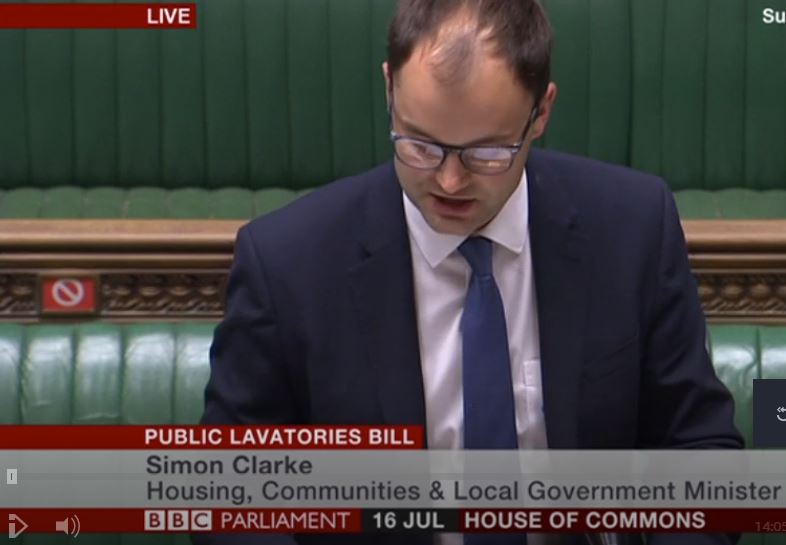
From a story by Dan Bloom Mirror Online Political Editor in June 2020
Local government minister Simon Clarke and environment minister Rebecca Pow wrote to council chiefs today urging them to reopen loos.
Public toilets told to reopen as outdoor wees pose ‘harm to public health’ Ministers have written to council chiefs in England to end the lockdown practice of people ‘relieving themselves in public. People are being urged to spend their hard earned pounds to boost the local economy – but many can’t even spend a penny. The government has demanded public toilets reopen after warning the number of people relieving themselves outdoors poses a “harm to public health”.
Ministers jointly wrote to town halls in England today calling on them to reopen any loos that are still shuttered to stop the spread of Covid-19. Toilets in parks and other public places were closed from March to prevent transmission of the virus. But that has left many people in a tight spot as parks reopen to social groups of up to six people – but many toilets do not.
They said: “Councils should consider the harm to public health and the local environment caused by people relieving themselves in public.” The ministers warned the situation has got worse as the weather heats up. Many sufferers with bowel conditions have told of avoiding trips outdoors altogether due to anxiety about where to find a toilet.
They added:”Public hygiene is of the upmost importance, especially during the CORONAVIRUS pandemic, and enabling residents to access toilets safely is vital. Handwashing is an extremely important activity to help prevent the continued spread of the virus.
“Enabling residents to access toilets safely is vital.
Handwashing is important” Closed toilets may also impact disproportionately on certain groups who for health reasons rely on access to public toilets to be able to leave their homes.They can also make life difficult for young families and people who work outside. If you have toilets that are still shut, then we strongly urge you to refer to advice on measures that can be taken to open toilets in a safe way.”
A spokesman for the Local Government Association (LGA) said:
“Councils have been taking individual local decisions about public toilets they control based on a risk assessment basis, if they can provide adequate cleaning staff and schedules and, of course, whether the governments social distancing measures can be maintained.”
QUESTION: How can a Minister ask an Authority to put its precious time and resources into something that neither he nor his own government see any advantage in supporting or funding. Without PRIMARY legislation and the appropriate budget to encourage proper clean and hygienic publicly accessible toilets then these appear to be, SADLY, just hollow words.
2025 The Dawn of a New Era

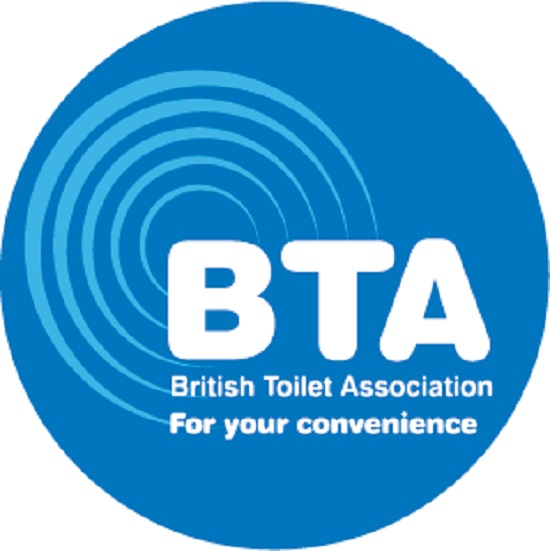
To All our Members, Partners, Friends and Colleagues we send you our Warmest Wishes for a vibrant and successful year ahead.
“I truely believe our new political campaign is gaining great traction and if we all work together we can make 2025 a year of renewed hope. Since its inception in 1851 the public toilet has risen and fallen in public conciousness many times. We once were the envy of all nations and our hygiene standards were exemplorary. But how they have diminished in the last 20 years – to the point of this country closing over 60% of its publicly accessible toilets and allowing the remaining units to fall into such dire repair and poor levels of cleanliness and hygiene. If Covid taught us anything it should have been to raise aour standards of cleanliness, hygiene and provision to combat the increasig threat of disease and transmission of germs. We need to renew our ight to decent clean sanitation and hygiene in readiness for the next pandemic.
The New Labour government is currently extremely interested in engaging with the BTA and hopes are high for a future public toilet strategy and a close working agreement. Also we look forward to working closely with many charities, organisations and individuals to help raise the standards of all “away from home” toilets, washrooms and bathroomSince the launch in 1851 s across the UK & Ireland”
Raymond Boyd Martin
Managing Director
